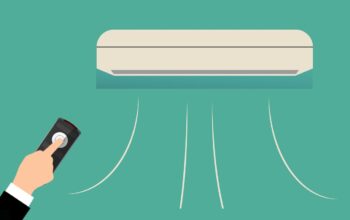Winter in Canada brings a picturesque snowy landscape and the challenge of keeping homes warm and energy bills manageable. The significance of eco-friendly home upgrades is paramount in this context. With buildings accounting for 17 percent of Canada’s greenhouse gases, there is a pressing need for more sustainable solutions.
Best Practices for Sustainable Home Upgrades for Winter
If you have plans to upgrade your home this winter, it’s best to include some environmentally-friendly options.
Opt for an energy audit
The journey to an eco-friendly home begins with understanding your home’s current energy use. So, before you renovate, do an energy audit of your home. It will give you a holistic picture of which areas need the necessary energy-efficient upgrade. This way, you can save money in the long run and identify opportunities for tax rebates and credits.
Homeowners who have upgraded can reach up to $3,200 in tax credits. This credit is applicable for improvements conducted until the year 2032.
Upgrade to low-flow bathroom fixtures
In Canada, household water consumption happens indoors. Showering accounts for 35 percent of daily water usage. On the other hand, flushing the toilet uses about 200 bottles worth of water. Also, laundry and cleaning activities comprise 25 percent of daily water consumption.
Transitioning to low-flow fixtures like shower heads and toilets can significantly reduce water usage, benefiting the environment and your wallet.
Seal and insulate properly
Proper sealing windows with eco-friendly, solvent-free caulking is an effective way to retain heat. Upgrading to eco-friendly insulation materials like cellulose, sheep’s wool, or recycled denim can significantly enhance your home’s thermal efficiency.
Use innovative window solutions
Replacing old windows with energy-efficient ones or applying low-emissivity glass can drastically reduce energy loss. Such upgrades cut cooling costs and minimize solar gain, proving beneficial in managing winter heating.
Implement grey-water recycling systems
Grey-water recycling systems, which repurpose water from sinks, laundry, and showers, can conserve significant water and reduce utility bills. This especially applies if it’s adequately weather-proofed for Canadian winters.
Choose low-VOC paints
Choosing low-VOC paints for your home ensures a healthier living environment by minimizing harmful emissions and aligns with sustainable practices. These paints are especially beneficial for households with children, pets, or individuals with allergies. They significantly reduce the risk of respiratory issues and allergic reactions.
Additionally, low-VOC paints typically have a faster drying time and less lingering odor. They are a practical choice for quick renovation projects and ensuring a comfortable living space soon after application.
Embrace renewable energy sources
Solar panels and wind turbines are excellent options for renewable energy sources. They can significantly reduce energy bills and even offer the possibility of returning excess power to the grid.
To effectively embrace renewable energy sources, consider these tips:
- Analyze your property’s solar potential and wind patterns to know the best placement for solar panels or wind turbines.
- Consult with renewable energy experts to get tailored advice for your specific needs and to ensure optimal installation and performance.
- Establish a regular maintenance schedule for your solar panels to ensure they operate efficiently and have a long lifespan.
- If you plan to sell excess energy, ensure your system is compatible with the grid. You must understand the process of feeding energy back.
- Consider investing in energy storage solutions like batteries to store excess energy during periods with less sun or wind.
Practice sustainable water management
In addition to adopting renewable energy sources, sustainable water management is another crucial aspect of eco-friendly home maintenance.
Looking for an eco-friendly drain cleaning in Toronto is essential for maintaining plumbing systems and preventing water wastage. By using environmentally safe methods and products for drain cleaning, homeowners can avoid the harmful effects of chemical cleaners. They can also protect their plumbing and contribute to water conservation efforts.
This practice helps maintain a green household and aids in the longevity and effectiveness of your home’s water systems.
Sustainable Living and Energy Consumption
Reducing energy consumption is crucial for sustainable living. Heating is the primary component of residential energy consumption in Canada, representing a significant portion of household bills. Simple, cost-effective strategies like turning off unused electronics, applying plastic film to windows, and installing foam draft strips can yield substantial energy savings.
Climate change underscores the importance of such eco-friendly upgrades. Several frameworks aim to drive innovation and reduce emissions through energy-efficient building codes and appliance standards.
Moreover, these energy efficiency measures could create new jobs, emphasizing the economic benefits of sustainable home upgrades.
A Win-Win for Homeowners and the Environment
Eco-friendly upgrades for winter homes in Canada are not just a matter of environmental responsibility; they are a smart economic choice.
Canadian homeowners can enjoy a warmer, more comfortable living space, lower utility bills, and contribute positively to the planet’s health.
As we face the challenges of climate change, such sustainable practices in our daily lives become increasingly crucial.
Related Posts

Loves home. I am here to provide how to make your home a much better place. 🙂 Blogging about HomeDecor, Home Improvements and more.











